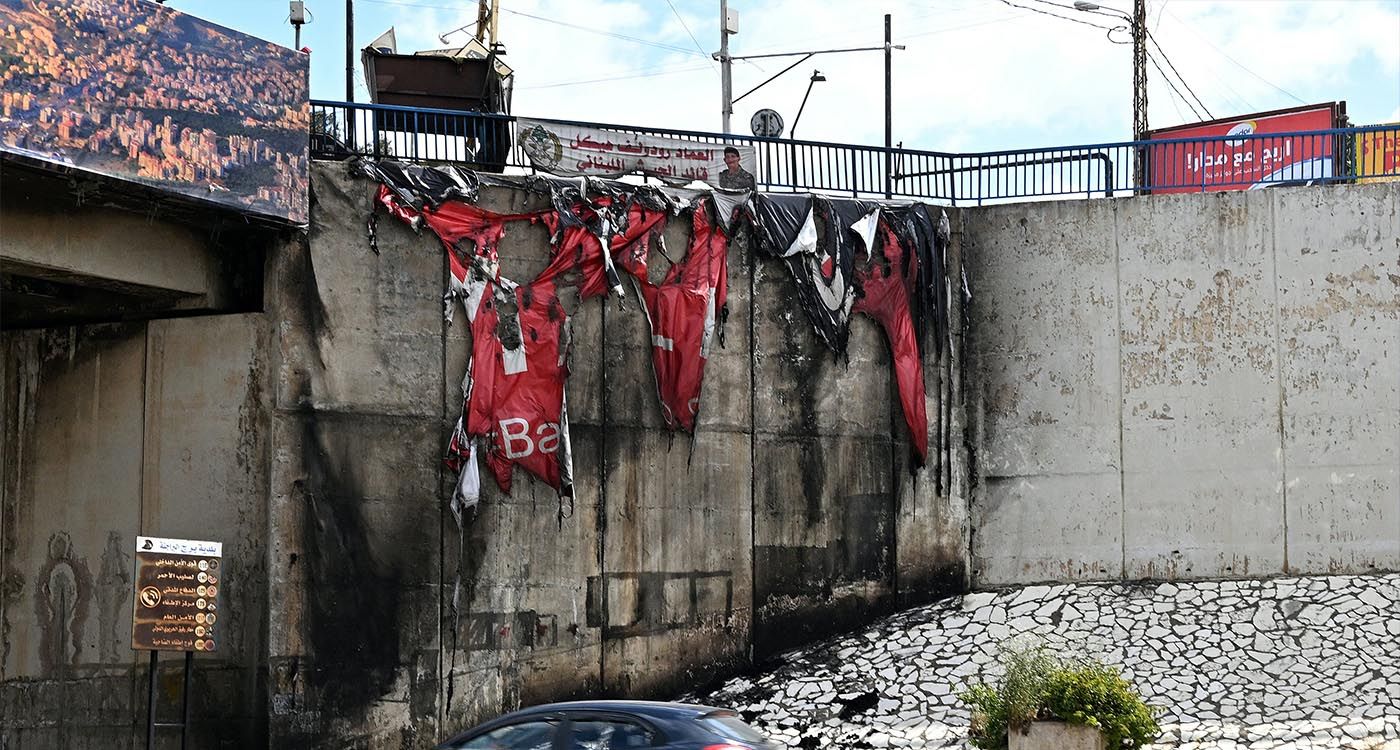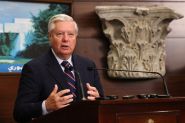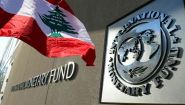
It’s striking how much Hezbollah’s projection of power has changed over the years. Once firmly gripping Lebanon’s state institutions, the party sought to assert dominance over the entire political spectrum—often by force.
There was a time when Hezbollah stormed Beirut with weapons and fire, burned down the TV studios of its political rival, the Future Movement, and forced new terms onto the national political scene—reshaping the game for 16 years, until its defeat in the 2024 war with Israel.
Another chapter saw its black-shirted supporters flood the streets to pressure lawmakers into appointing Najib Mikati as prime minister, bypassing their original choice, Saad Hariri.
Back then, Hezbollah simply had to raise its voice—or its weapons—and it would get its way in Lebanese politics.
Today, the party’s strongest expression of resistance is tearing down billboards.
Specifically, promotional posters along the airport road—long adorned with Hezbollah’s slogans and the image of its late leader—were replaced by Lebanon’s national flag and the slogan: “A New Era for Lebanon.” The state wanted to send a message of unity and renewal to arriving travelers.
But in response, Hezbollah supporters—acting in apparent coordination—set the new posters ablaze, not once, but repeatedly. It’s a symbolic tantrum, expressing discomfort with a shifting political reality. Burning these posters has become, in effect, their loudest act of defiance.
And since the current leader doesn’t carry the same emotional weight, the return of the former leader’s face to the walls is now the most they can hope to achieve domestically.
The state, for its part, must hold its ground. If the posters are burned, they should be replaced the next day—and again the day after that. No concessions. No surrender to old symbols of imposed authority.
While these acts play out on the surface, a deeper narrative is taking shape—voiced not by top officials, but by second-tier Hezbollah allies like political commentator Rafiq Nasrallah. In a recent interview, he laid bare what the party won’t say outright: that handing over weapons should come with a political price—such as increased influence in state institutions, a reshuffling of the top leadership posts, and replacing power-sharing with sectarian majority rule.
But perhaps the most telling moment was his “slip” when discussing electoral reforms to benefit Hezbollah’s base: he threw in a call for a “civil state” and the abolition of sectarianism. This well-worn slogan—presented as progressive—has repeatedly been used as a Trojan horse to entrench sectarian dominance under the guise of secularism.
In Lebanon, no one pushes this slogan without a hidden agenda. It’s never just about reform—it’s about power.
This reality isn’t new, but it deserves renewed scrutiny in light of today’s shifting dynamics. Those pushing so-called civil state ideals often cloak sectarian ambitions in the language of rights and reform. It’s a façade.
True statehood comes when weapons are handed over and the state belongs to all—not when an armed faction attempts to rule it by force.



Comments